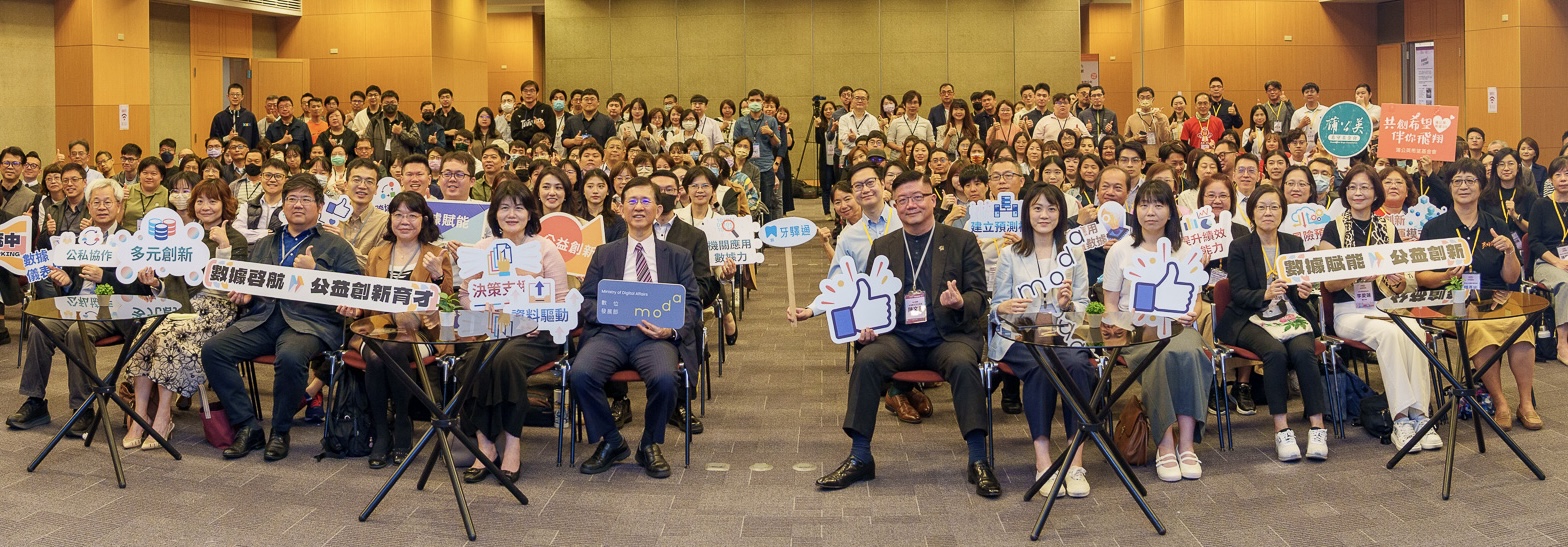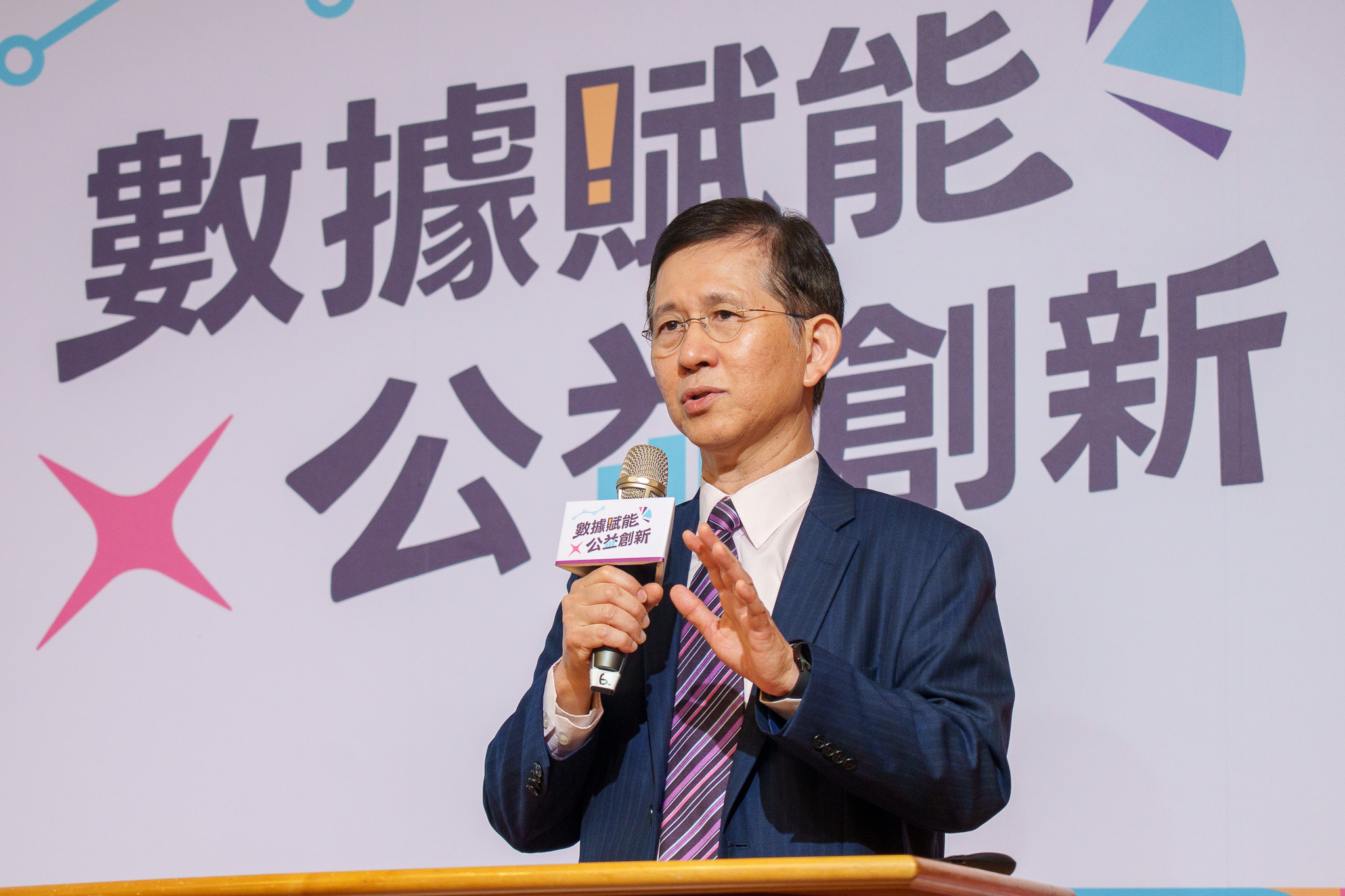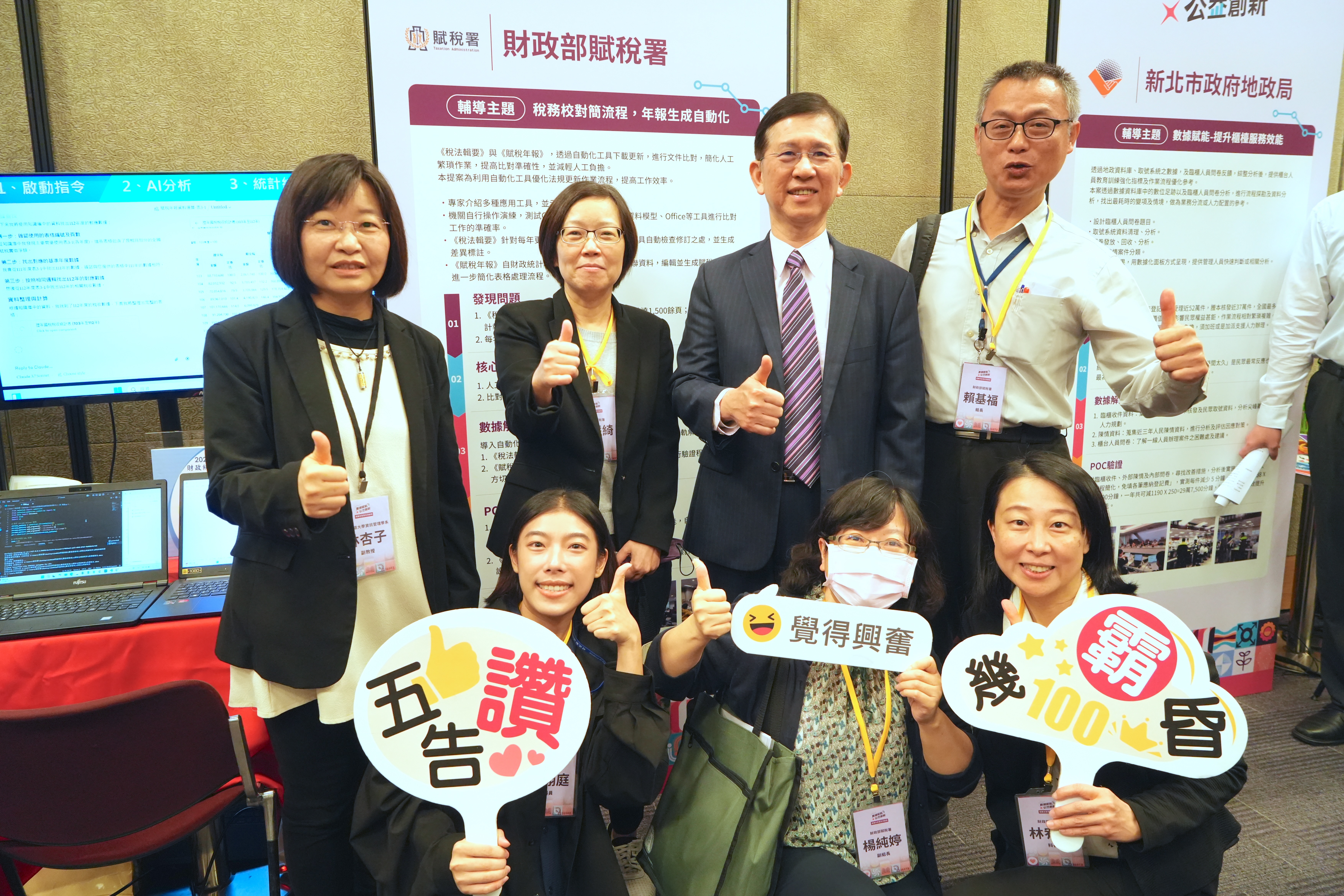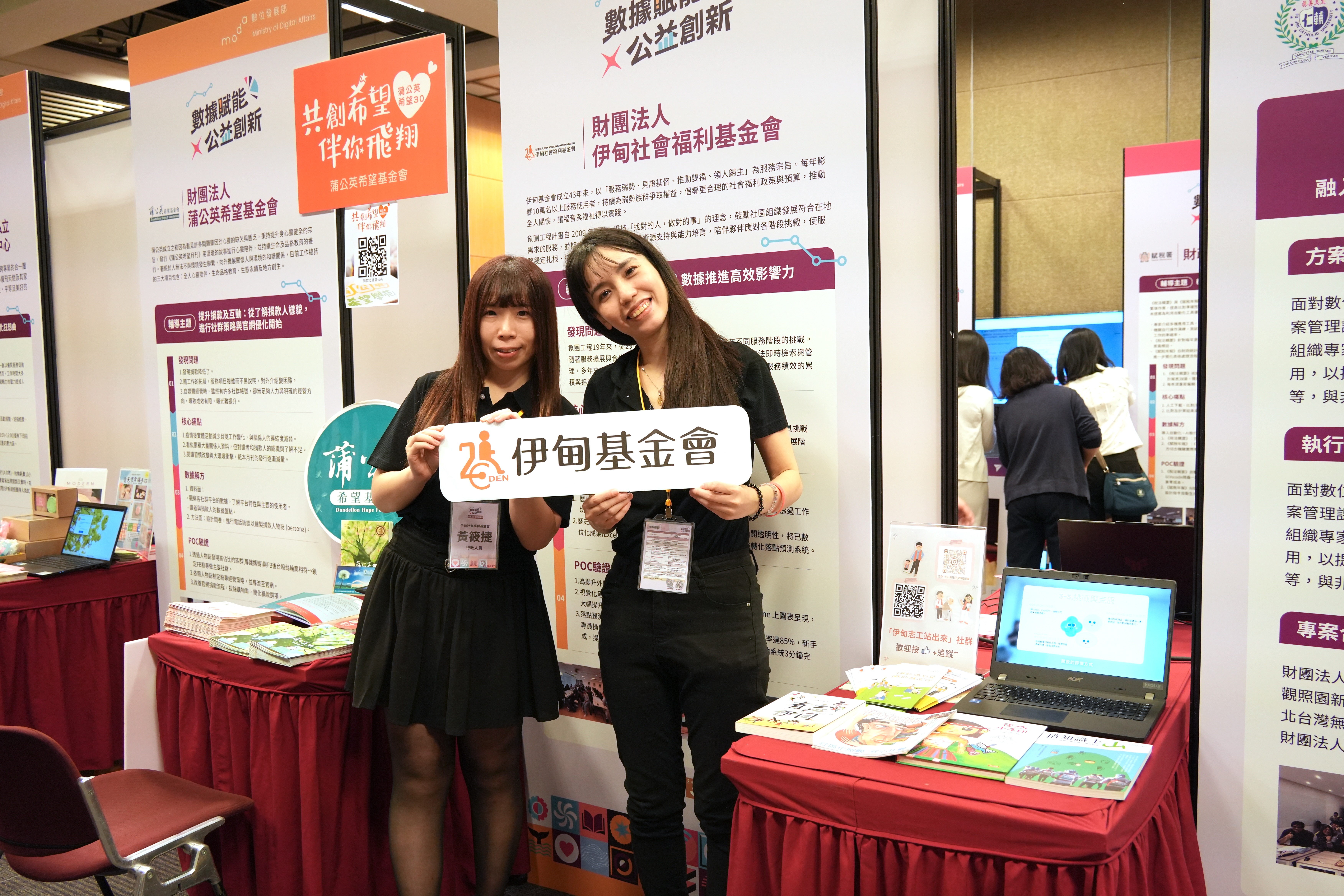The Ministry of Digital Affairs Hosts “Data for Good: Social Innovation” Forum Showcasing Contributions from Over A Thousand Civil Society Partners
To promote the integration of digital technology and public interest initiatives, the Ministry of Digital Affairs (MODA) held the annual “Data for Good: Social Innovation” Results Sharing Forum on March 26. The forum highlighted achievements from over 1,000 nonprofit partners and over 300 participating organizations in their data-driven transformation journeys. The event featured 10 nonprofit and non-governmental social innovation organizations and five government agencies sharing their innovative applications and successful experiences.
The Angel Heart Family Social Welfare Foundation and Love Child Foundation presented how data analytics has helped deliver more targeted respite care services for families with children with disabilities. With the introduction of the flexible database system, the time spent by social workers on duplicate case entries has reduced significantly, allowing them to focus more on direct care. The AI Ocean Database attracted attention with its creative integration of marine exploration and sustainable tourism. Meanwhile, government agencies showcased how AI tools are applied to improve operational efficiency and reduce service wait times for the public.
Minister Yennun Huang emphasized that the “Data for Good: Social Innovation” project has remarkable achievements, winning recognition at the 2024 IT Matters Awards for its social impact. Minister Huang noted that to amplify its impact further, the Ministry will continue to provide new tools and approaches to empower the social sector through data. The forum’s three thematic sessions — “Data Illuminates Care,” “Digital Transformation Power,” and “Data as Compass” — collectively demonstrated how data can not only solve existing challenges but also spark cultural innovation.
Organizations from various sectors also shared their transformation outcomes. The Angel Heart Family Social Welfare Foundation and the Child Welfare League Foundation used the “Data Discovery” initiative to analyze member databases and survey results, identifying the needs of families with children with disabilities and vulnerable households. The initiative enabled the organizations to offer more customized and cordial respite services. The Lishin Charity Foundation successfully reduced the time required for social workers to create family genograms by 58 hours by establishing a unified data management platform. The Love Child Foundation implemented the Ragic system for managing Individual Support Plans (ISP), using digital, standardized, and visualization tools to reduce documentation time by 3.5 hours per case, enhancing organizational responsiveness and management.
Director-General Ming-Fen Chuang of the Department of Data Innovation added that this year marks the first time social innovation organizations participated in the support program, showcasing collaborative outcomes in ocean data sharing. The BlueTrend combined marine data and generative AI to connect ocean tourism and biodiversity databases, creating a comprehensive marine data profile for Taiwan with significant value for environmental diplomacy. The Yi-Kang Biomedical Company adopted multiple digital tools under expert guidance to automate workflows, reducing paperwork time by 75%. Government agencies also actively explored AI applications. Taitung County Fire Department utilized AI to assist in interpreting fire safety inspection diagrams, cutting review time by 90%. The Taxation Administration of the Ministry of Finance applied web crawlers, automation tools, and generative AI to streamline regulatory data collection and comparison, automating tax regulation and report verification processes and saving an average of 60% in manual labor time while enhancing efficiency and accuracy.
To further cultivate a data innovation ecosystem, the forum gathered over 20 nonprofit organizations and IT service providers for a showcase, facilitating resource matchmaking. In collaboration with Fu Jen Catholic University and the National Pingtung University of Science and Technology, the Ministry also unveiled new talent development programs for public-interest innovation, combining interdisciplinary creativity from digital natives with the practical needs of local organizations. Médecins Sans Frontières and World Vision Taiwan also shared their experiences in data transformation, bridging local characteristics with a global perspective.
The Ministry concluded by reaffirming its commitment to working alongside NGO and NPO partners to build an inclusive digital society where data can empower goodwill and creativity and reach those in need with greater precision.



